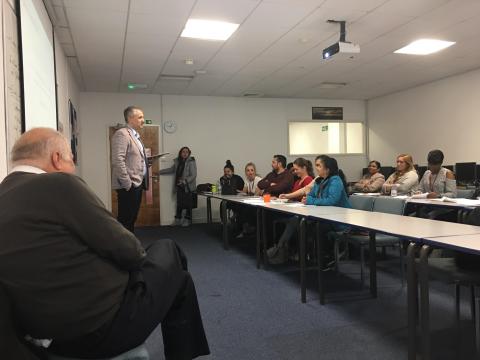
It is a paradox, yet the human brain is self-protective; hence we always assume the worst-case scenario. That's our comfort zone. However, with a little effort, there is a better way to an abundant life.
Let's take a look at this conversation.
A wise teacher once said to his student:
- Please look around this room and try to find everything in it that is brown.
⠀
The young man looked around. There were many brown objects: wooden picture frames, a sofa, a curtain rod, book covers and many other minor things.
⠀
- Now close your eyes and list all the objects ... which are blue," the teacher asked.
⠀
The young man looked confused:
- But I didn't notice anything!
⠀
Then the teacher said:
- Open your eyes. Look how many blue objects there are!!!
⠀
It was true: a blue vase, blue picture frames, a blue carpet...
⠀
The student replied:
- But this is a trick! You told me to look for brown objects, not blue ones!
⠀
The teacher sighed softly and then smiled:
- That's exactly what I wanted to show you! You have only looked for and found brown. It is the same with your life; you only look for and see the bad, and you lose sight of the good!
⠀
- But I was always taught that you have to expect the worst, and then you will never be disappointed. If the worst doesn't happen, I will be surprised. But if I always hope for the best, I run the risk of being disappointed!
⠀
- The belief in the benefits of waiting for the worst causes us to lose sight of all the good things in our lives. If you expect the worst, you will get it. And vice versa. It is possible to find a point of view from which every experience will have a positive meaning. From now on, you will look for something positive in everything!
I am unsure if you spotted a little gem - a life hack in this story: "The good things come to life only when you pause, reflect and evaluate."
Shirzad Chamine, the creator of Positive Intelligence, has something to offer:
After every negative outcome, take a break - breath. Then take pen and paper and note down three potential positive outcomes.
Here is the thing, our reactiveness triggers negative thinking and behaviour patterns. On the contrary, being proactive: learning to pause, serves us as a change agent.
To conclude:
- On the individual level, learn to take breaks and pause from your activities.
- On the organisational level, train your staff to practice the above. And, if you are not managing anyone, showcase such behaviour to your colleagues. I have consulted organisations where a simple "Good morning" by a security lad daily has triggered impactful cultural change programs (You never know who sees your efforts from behind).
Need help for you or your team? Give me a shout now!
